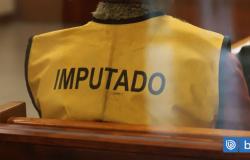The work “Pardos, infiditor and insurgent in Venezuela (1790-1812) ”, written by Rocío Castellanos and edited by the Simón Bolívar Studies Center (CESB), was presented on Wednesday afternoon at the South Bookstore of the Center for Latin American and Caribbean Studies (Celarg), where the author held a conversation with Rosario Soto, executive director of CESB.
Two decades of research have allowed the Colombian historian to deepen and capture in two publications and several articles, the History of the brown in Venezuelatracing through various sources that extract when studying the daily life of this social group of the colony era.
Castellanos, a researcher at the Center for Historical Research in Latin America (Cihal) Universidad Jaume I of Spain, said that the Pardos represented the majority of the Venezuelan population in the colonial society, therefore they represented the livelihood in many sectors and economic levels within the General Captaincy.
This second text expands the work contained in its first book published by the General Archive of the nation in 2010 and represents another step in the study of the brown in Venezuela, based on their interest in the history of the popular sectors in the Bolivarian nation and for turning their product into a contribution to other researchers.
In this way, it describes in detail the origin of the brown, the characteristics, their condition or classification according to the skin color, the culture, the economic and commercial activity, its territorial movements, negotiations and political inclinations, during important periods such as the First Republic and the beginning of the War of Independence in Venezuela.
-On the sources consulted in his investigation, Castellanos explained that the bulk of the documentation are complaints, trials and military leaves. “When we tracked populations that did not generate documents directly (since they lacked recognition as citizens), it is more difficult because the documents are written by other people who did not want them,” he said.
The text will be presented by Castellanos in the Bogotá Book Fair Next Sunday, April 27. “What a pride, what happiness. I am very excited,” said the Colombian author, who considers herself a Venezuelan heart and has dedicated a great effort to investigating the history of what she feels like her second homeland.
Rosario Soto highlighted the relevance and the great contribution of this new publication, which is part of the Bolívar XXI collectionproduced by CESB and dedicated to disseminating essays resulting from new investigations. He indicated that it is available on the southern bookstores network and in its digital version through the institution’s portal: cesimonbolivar.com.ve.
T: CESB Press.
Bolívar program explores the key role of brown in the independence of Venezuela






